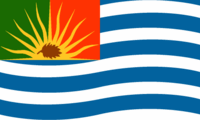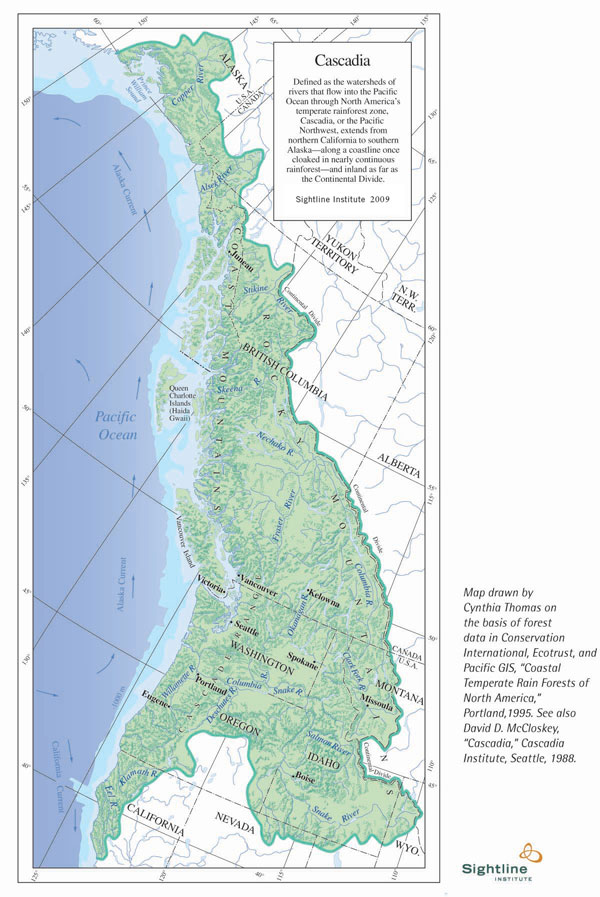Cascadia: Difference between revisions
Jump to navigation
Jump to search
WikiMaster (talk | contribs) (Slight edits. Transclude content from Cascadia subduction zone.) |
WikiMaster (talk | contribs) |
||
| Line 31: | Line 31: | ||
[[Category:Politics]] | [[Category:Politics]] | ||
[[Category:Vacation spots, Portland getaways]] | |||
Revision as of 16:57, 4 September 2011

Cascadia is a proposed independent nation in the Pacific Northwest, usually composed of Oregon, Washington, and British Columbia, that would be formed by seceding from the United States (and Canada).
Water and Forests
According to Sightline Institute "Cascadia is defined by water and forests: it encompasses all of the watersheds whose rivers flow through the temperate rainforests on the northwest Pacific coast."[1]
Statistics of the Republic of Cascadia[2]:
- Name: The Republic of Cascadia (long form), Cascadia (short form)
- Capital: Cascadia
- Area: 855,762 sq km
- Population: 14,220,981 (2005 est)
- GDP: US$323 billion (1996 est)
- Language: Cascadese (a dialect of English)
- Time System: Metric Time
Cascadia Subduction Zone

{{#section:Cascadia subduction zone|Cascadia subduction zone intro}} Continue reading >>>